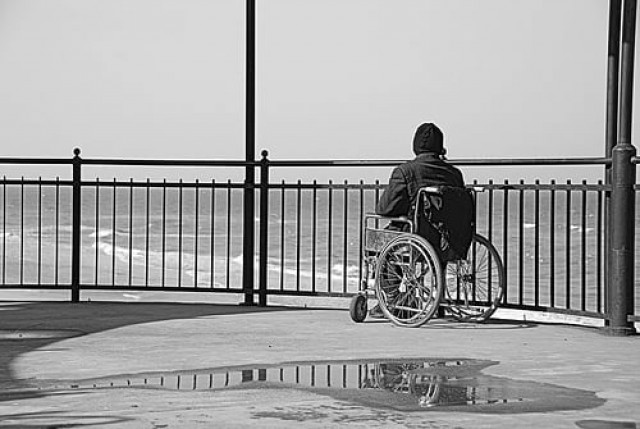Finding ability in disability: Breaking the crutches of crippling disease
Health professionals urge polio patients to engage in sportive activities.

Finding ability in disability: Breaking the crutches of crippling disease
Children suffering from polio should not be confined to indoors. Instead, they should be provided outlets to help nourish their physical and mental health as isolation in any form can have long-term repercussions, said health professionals while talking to The Express Tribune on Monday.
In our society someone suffering from any sort of physical disability is considered a curse, said Dr Khalid Jamil, who has devoted his life to the welfare of physically and mentally challenged people. He said that children suffering from polio should engage in sportive activities as by refraining from moving their limbs, they could further damage their muscles. Jamil said that through physical exertion, muscles of polio victims are activated. However, he also warned that play hours should not be too long as overexertion could damage joints and muscles, he added. Jamil advised polio victims to consult their doctors before starting any exercise.
Moreover, Dr Shaista Ambreen, an associate manager at Shifa International Hospital’s rehabilitation department, said that children with polio can indeed walk and play outdoor games. “In my 15-year tenure, I have seen many such children play cricket in their streets and revive their affected muscles,” she said.
Preventing children from playing outdoors develops fear in them. They start considering their movement impossible and end up becoming dependant on others for life, she added.
Nawaz Gohar, the 30-year-old captain of the Rawalpindi/Islamabad Disabled Cricket Team, is a role model for children suffering from polio. He has been living with the crippling disease since he was just five months old.
“It was a big shock for my parents, as I was their first child, and they used all their resources for my treatment,” said Gohar. At that time polio was not very common in Pakistan, he said. “One day, sitting near a playground watching my class fellows playing games, I asked me myself, why can’t I be like them?” Gohar started playing badminton with crutches. “I fell and I repeated but I did not give up. Slowly and gradually, my leg, which was useless, became active and I did not need my crutches any more,” he said.
“I remember it was a big day for my family when I came home walking without crutches,” he added candidly.
Gohar was of the view that people with polio playing in the playgrounds give a clear message that their physical disability is not a hurdle in their way to make a mark in the playfield. He said there is a need to create awareness among parents that if their child is physically challenged, it does not mean that he is also mentally disabled.
Quoting an inspiring example, he said, “Physically challenged children from Pakistan won 57 medals in the Special Olympics, Athens, in 2011.”
Published in The Express Tribune, April 3rd, 2012.



















COMMENTS
Comments are moderated and generally will be posted if they are on-topic and not abusive.
For more information, please see our Comments FAQ